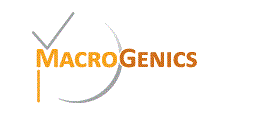
Source: MacroGenics, Inc.
MacroGenics Announces Publication of Cancer Stem Cell Research in Lung Cancer
Data Featured in PLOS ONE Contribute to MacroGenics' Platform to Identify Monoclonal Antibodies that Target Cancer Stem Cells
ROCKVILLE, Md., Dec. 11, 2013 (GLOBE NEWSWIRE) -- MacroGenics, Inc. (Nasdaq:MGNX), a clinical-stage biopharmaceutical company focused on discovering and developing innovative monoclonal antibody-based therapeutics for the treatment of cancer and autoimmune diseases, today announced the online publication of data on the isolation of cancer stem-like cells (CSLCs) from human adenosquamous carcinoma (ASC) of the lung in the journal PLOS ONE. This research contributes to the expanding repertoire of model CSLC lines identified and characterized by MacroGenics and increases the number of important models from which MacroGenics can generate antibody-based drug candidates.
"Our Cancer Stem-like Cell Platform provides a unique discovery tool to identify cancer targets shared both by tumor-initiating cells and the differentiated cancer cells derived from them," said Scott Koenig, M.D., Ph.D., President and CEO of MacroGenics. "Ongoing research at MacroGenics furthers our understanding of cancer stem cell biology and its significance in oncology treatment based on the role of these cells in tumor re-growth and metastasis."
In the publication, Isolation of Cancer Stem Like Cells from Human Adenosquamous Carcinoma of the Lung Supports a Monoclonal Origin from a Multipotential Tissue Stem Cell, investigators from MacroGenics describe CSLCs isolated from patients with ASC of the lung using defined serum-free culture conditions. ASC is a subtype of non-small cell lung cancer (NSCLC), a cancer characterized by tumors that contain cells with both squamous and adenocarcinoma (AC) histological phenotypes. The isolated CSLCs display the properties of self-renewal, tumorigenicity, metastasis and the potential to undergo multi-lineage differentiation, all of which are associated with cancer stem cells. This research furthers the hypothesis that ASC tumors arise from a monoclonal origin derived from a common, as yet unidentified, precursor.
About MacroGenics' Cancer Stem-like Cell Platform
MacroGenics' CSLC platform provides new approaches to discover and identify cancer targets that are unresponsive to current therapies. Using this technology, the company can create antibodies or antibody-derived molecules that target cancer stem cells, potentially enabling the company to address the large, unmet medical need associated with many cancers that are difficult to treat. MacroGenics has utilized its CSLC platform to generate or characterize the antibodies used in its MGA271 and MGD007 product candidates.
About MacroGenics, Inc.
MacroGenics is a clinical-stage biopharmaceutical company focused on discovering and developing innovative monoclonal antibody-based therapeutics for the treatment of cancer and autoimmune diseases. The company generates its pipeline of product candidates from its proprietary suite of next-generation antibody technology platforms, which it believes improve the performance of monoclonal antibodies and antibody-derived molecules. The company creates both differentiated molecules that are directed to novel cancer targets, as well as "bio-betters," which are drugs designed to improve upon marketed medicines. The combination of MacroGenics' technology platforms and antibody engineering expertise has allowed the company to generate promising product candidates and enter into several strategic collaborations with global pharmaceutical and biotechnology companies. www.macrogenics.com
Cautionary Note on Forward-Looking Statements
Any statements in this press release about future expectations, plans and prospects for the Company, including statements about the Company's strategy, future operations, clinical development of the Company's therapeutic candidates, milestone or opt-in payments from the Company's collaborators, the Company's anticipated milestones and future expectations and plans and prospects for the Company and other statements containing the words "anticipate," "believe," "estimate," "expect," "intend," "may," "plan," "predict," "project," "target," "potential," "will," "would," "could," "should," "continue," and similar expressions, constitute forward-looking statements within the meaning of The Private Securities Litigation Reform Act of 1995. Actual results may differ materially from those indicated by such forward-looking statements as a result of various important factors, including: the uncertainties inherent in the initiation and enrollment of future clinical trials, expectations of expanding ongoing clinical trials, availability and timing of data from ongoing clinical trials, expectations for regulatory approvals, other matters that could affect the availability or commercial potential of the Company's product candidates and other risk factors described in the Company's filings with the Securities and Exchange Commission. In addition, the forward-looking statements included in this press release represent the Company's views as of the date hereof. The Company anticipates that subsequent events and developments will cause the Company's views to change. However, while the Company may elect to update these forward-looking statements at some point in the future, the Company specifically disclaims any obligation to do so. These forward-looking statements should not be relied upon as representing the Company's views as of any date subsequent to the date hereof.